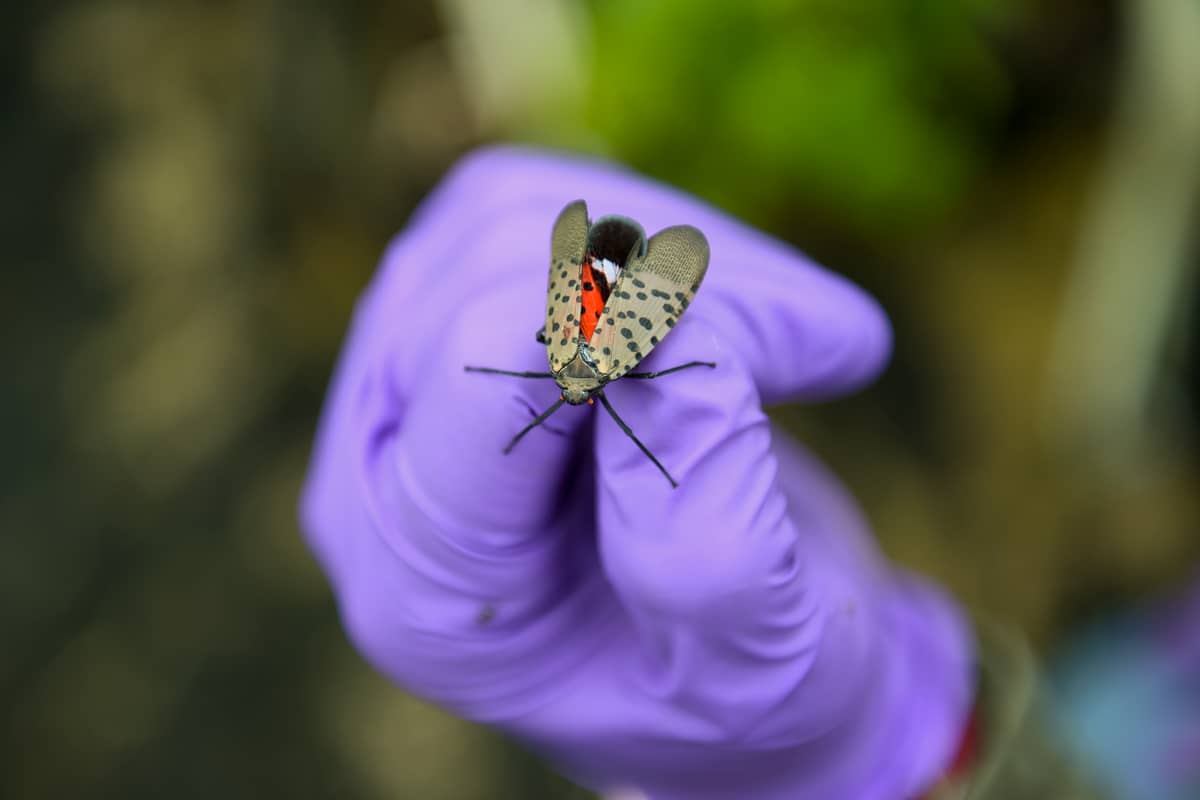Recent reports from local news sources and television stations tell a distressing tale, particularly for small birds of Lebanon County and the surrounding region.
This summer, a strange disease began spreading among nestling and fledgling songbirds — not only in Pennsylvania, but in Delaware, Indiana, Kentucky, Florida, Maryland, Ohio, Virginia, West Virginia, and Washington, D.C..
The mysterious illness has common symptoms of swelling and discharge around the eyes, blindness, and even neurological problems. So far, it appears as though the majority of the casualties are blue jays, starlings, cardinals, common grackles, and robins, according to the Pennsylvania Game Commission.
Many locals have speculated a culprit: lanternfly sticky wraps, a product that has recently skyrocketed in popularity, due to the arrival of spotted lanternflies in the county only a few years ago.
Read More: Spotted lanternflies return with springtime appearances
However, according to Casey Clauser, master gardener coordinator of Penn State Extension, the strange disease is not related to lanternfly sticky tree wraps.
“These is a mysterious disease infecting small birds, but studies are still being done to figure out what’s causing it,” he said. “That is a completely separate issue than the dangers of sticky wraps.”
Sticky tree wraps, while not responsible for the fowl disease, do pose a significant threat to little birds. According to Penn State Extension, the major drawback of sticky tree bands is that “the sticky material can capture other insects and animals, including birds, small mammals, pollinators, butterflies, and more.”
Read More: LebTown’s home garden guide on curbing the spotted lanternfly
The bugs ensnared by the stickiness are a tempting treat for birds who may then get stuck as well and injure themselves.
“There’s a chance that birds could get stuck to the tree,” Clauser said. “Putting a protective barrier around the sticky wrap is the best way to prevent that from happening. Some people use chicken wiring, but window screening is a better option.”
Sticky wraps have become fairly prevalent in this area, according to Clauser, but there is a new trap – a circle trap – that doesn’t require a sticky band and is a lot safer for little creatures. Building a homemade trap is easy and Penn State Extension provides detailed instructions.
The Game Commission continues to investigate the mysterious bird disease and in the meantime, recommends steering clear of feeding the affected species and routinely cleaning bird baths and feeders with a solution that is 10% bleach.
For more information on spotted lanternfly traps, contact the Master Gardeners Garden Hotline, which is staffed from 9 a.m. to noon. Call 717-639-3587 or email LebanonMG@psu.edu anytime.
At the time of publication, the PA Game Commission could not be reached for comment.
Questions about this story? Suggestions for a future LebTown article? Reach our newsroom using this contact form and we’ll do our best to get back to you.

Support Lebanon County journalism.
Cancel anytime.
Monthly Subscription
🌟 Annual Subscription
- Still no paywall!
- Fewer ads
- Exclusive events and emails
- All monthly benefits
- Most popular option
- Make a bigger impact
Already a member? Log in here to hide these messages
Local news is a public good—like roads, parks, or schools, it benefits everyone. LebTown keeps Lebanon County informed, connected, and ready to participate. Support this community resource with a monthly or annual membership, or make a one-time contribution. Cancel anytime.
























